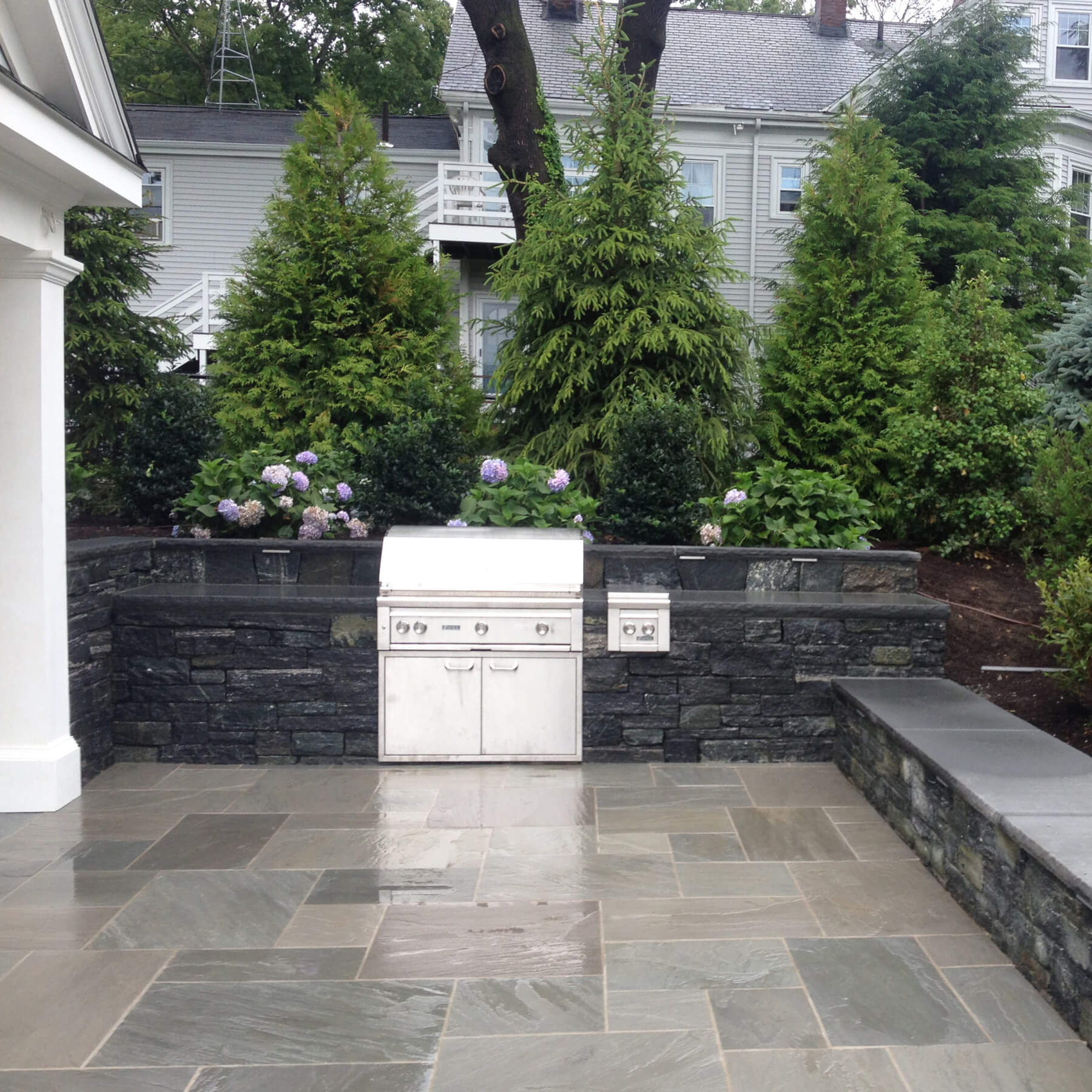The length of time your sandstone paving lasts depends upon several factors, not least the quality of the stone used.
Sandstone paving derived from a reliable source will, if looked after, endure many harsh winters and baking hot summers while maintaining its unique finish.
Does sandstone paving fade?
If it is in direct sunlight, then there is likely to be some fading but this will only add to its character.
Unlike concrete, natural stone, like sandstone, has a beautiful elegant finish that can improve with age.
This means that when it weathers it can look better and even add value to a property.
Does sandstone break?
You can break sandstone, which makes it easy to install.
However, once laid, sandstone’s high durability over the years makes it a better choice for commercial hard landscaping projects than a man-made substance like concrete.
How should it be maintained for longevity?
Be sure that you occasionally clean your sandstone paving.
You can do this by lightly brushing off the dust before watering the flooring to remove dirt that settles into the sandstone’s texture.
In wet climates, make sure you clean often enough not to let any algae growth survive.
If this happens you can use soapy water, or a bleach mixture.
Combine equal parts of bleach and water, and pour onto the slabs.
Leave for around 30 minutes and wash off with a stiff brush, power washer or a hose to ensure you have got rid of all the bleach.
Can you take scratches out of sandstone paving?
Sandstone is a sedimentary rock made up of feldspar and quartz.
This means it is relatively soft, and vulnerable to minor scratches and marks on its surface.
If your sandstone floor has become scratched, it is possible to both remove the slightly deeper scratches and hide the lighter ones.
Do this through a combination of wet-sanding the stone and using a solvent-based topical sealer to bring out the deeper colours and to hide the scratch.
Should sandstone paving be sealed?
Sandstone is a soft natural stone that is permeable, which means moisture can penetrate its surface. For that reason, it is advisable to seal your paving.
This not only protects the stone, but prevents any staining as well as helping to prevent a build-up of any unwanted growths that thrive in moist environments such as algae, moss or mould.
You can seal your stone slabs before you lay them to prevent them staining while they are being installed, or you can leave them unsealed for a year before you apply the sealant to allow the stone to gain a gorgeous weathered look.
It is advisable to seal your sandstone regularly, and this depends upon how porous it has become.
As a rule, if your sandstone absorbs water immediately, you should seal it annually.
If it takes five to 10 minutes for water to absorb then this can be done every three to five years.
For more information or advice on natural stone paving, do not hesitate to contact our team today by calling 0800 689 5236 or by sending an email to info@premiumpavingco.com








